|
NIH global health research newsletter: Breastfeeding in LMICS. NIH invests to advance AI. Four decades of progress on HIV/AIDS.

|
May / June 2021
Download printable PDF
|
|
A new NIH Common Fund program, called Bridge to Artificial Intelligence (Bridge2AI), will invest about $100 million over four years to tap into the power of AI to advance research to inform clinical decisions and individualize care.
|
 |
|
This summer marks 40 years since the CDC officially reported the first cases of the disease that came to be known as HIV/AIDS. Fogarty's HIV research training programs have helped build the global expertise necessary for sustained research efforts.
|
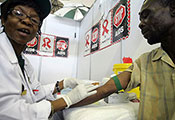 |
|
Relationship-building and a commitment to open science underpinned Fogarty’s many modeling triumphs during the COVID-19 pandemic, led by scientists with the Center's Division of International Epidemiology and Population Studies.
|
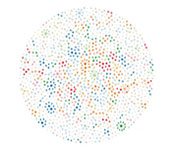 |
|
Dr. Emmy Okello, chief of cardiology at the Uganda Heart Institute and honorary associate professor at Makerere University, discusses cardiology in LMICs, rheumatic heart disease, how MEPI advanced his career, and advice for mentees.
|
 |
|
Does a prior dengue infection alter a person’s risk of Zika disease? Fogarty Fellow Dr. Leah Katzelnick’s project showed a previous Zika infection increases the risk of dengue disease severity.
|
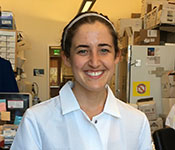 |
|
Although six months of exclusive breastfeeding has long been recommended by the WHO to promote healthy child development, progress has stalled in some low-resource settings, jeopardizing efforts to reduce infant mortality. A number of barriers exist in low- and middle-income countries and each poses unique research questions.
|
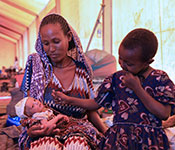
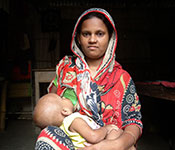 |
|
Also in this issue
NIH takes action against sexual harassment
NIH has removed 75 principal investigators due to instances of sexual harassment or other forms of misconduct, according to a recent update to the Advisory Committee to the Director. Fogarty publishes HIV concept mapping project
A team of scientists completed a concept mapping exercise, published as an open-access article, to identify factors that impact the implementation of HIV prevention and intervention programs for adolescents in sub-Saharan Africa. Former NIH Director Dr Harold Varmus leads new WHO Science Council
As part of its transformation, the WHO has established a Science Council to provide advice on high-priority issues that could have a direct impact on global health. Led by former NIH Director Dr. Harold Varmus, its members include several past and present Fogarty grantees. African Postdoctoral Training Initiative announces second cohort of fellows to be hosted at NIH
The African Postdoctoral Training Initiative (APTI) will soon welcome its second cohort of ten fellows to NIH. Research!America recognizes advocate Mary Fogarty McAndrew
In its first virtual advocacy awards ceremony, Research!America recognized the contributions of many supporters, including advocate Mary Fogarty McAndrew, who received the 2020 Gordon and Llura Gund Leadership Award. People in the news:
- Ambassador Samantha Power confirmed as USAID administrator
- Gayle Smith to helm Biden’s COVID-19 vaccine diplomacy
- NINDS Director Dr Walter Koroshetz honored by University of Chicago
- Dr Leonardo Cubillos to lead global mental health research at NIH
- South African bioengineer Dr Tania Douglas dies
- Fogarty grantee Dr Mary-Claire King receives Gairdner Award
- Details: People in the news
Global health briefs:
- National Cancer Institute issues plan for global health research
- WHO develops research guidance
- Scientists create SpillOver virus database
- Global Alliance for Chronic Diseases launches case study collection
- 2020 G-FINDER report on R&D released
- Details: Global health briefs
E-news extras
- NIH and Fogarty research news related to SARS-CoV-2 and COVID-19
- Fogarty, NIH and U.S. government global health research news
- Grantee spotlight: Dr Simone Badal
Novel prostate cancer cell lines to address prostate cancer disparity in Black men
National Cancer Institute Center for Global Health Spotlight blog post, May 27, 2021
- Addressing climate change and its health issues through collaboration, featuring Fogarty Senior Scientist Dr Joshua Rosenthal
NIEHS/NIH Environmental Factor, May 2021
- HIV-related stigma research as a priority at the National Institutes of Health, including a summary of Fogarty approaches and activities, co-authored by Fogarty's Dr Geetha P Bansal and Arianne Malekzadeh
AIDS and Behavior, April 22, 2021
- US government announces major re-commitment to clean cooking and the Clean Cooking Alliance
Clean Cooking Alliance news, April 22, 2021
- Supplement targets gut microbes to boost growth in malnourished children in study supported in part by NIDDK
NIH Research Matters, April 20, 2021
- More global health research news from Fogarty
|
Funding opportunities
|
Upcoming events
 Fogarty on Facebook | Fogarty on Facebook |  Fogarty on Twitter | Fogarty on Twitter |  Subscribe Subscribe
|
|
Global Health Matters is produced by the Office of Communications at the National Institutes of Health's Fogarty International Center. For more information, please contact managing editor Ann Puderbaugh at ann.puderbaugh@nih.gov or 301-496-2075.
Permission to reprint Global Health Matters content: All text produced in this newsletter is in the public domain and may be reprinted. Please credit Fogarty International Center. Images must be cleared for use with the individual sources, as indicated.
The Fogarty International Center, the international component of the U.S. National Institutes of Health, addresses global health challenges through innovative and collaborative research and training programs and supports and advances the NIH mission through international partnerships.
Subscribe, update your subscription or unsubscribe to the Global Health Matters e-newsletter from the Fogarty International Center. We encourage you to forward this e-newsletter to colleagues who may find it of interest. |
|







